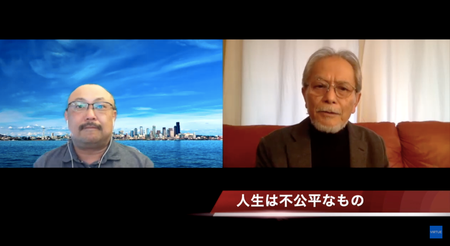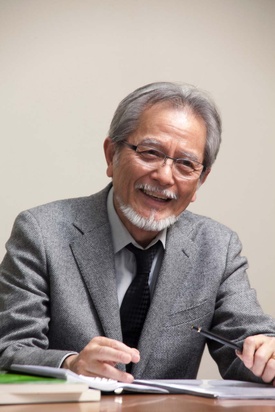Initially, he plans to stay in the U.S. for one year.
When I was looking for active seniors for a magazine project, a friend living in Seattle introduced me to Scott Tsumura, saying, "I know a senior who is as active as you can get, and I respect him." I'm not familiar with games, so I didn't know who Scott was, but when I searched his name, I found out that he is a legendary creator in the gaming world, who was involved in the development of "Spelunker," a game that took the world by storm in the 1980s. I learned that he is still active at 79 years old, and is involved as an advisor in the project for "Amico," a new video game console to be released this fall by a company called Intellivision Entertainment.
Like my friend, he lives in Seattle, Washington. His name makes you think he is Japanese-American, but he is actually a Japanese man born in Nagoya who came to America in 1988 at the age of 46. Moreover, when he came to America, he only planned to stay for one year. He was relocating alone, leaving his family behind in Japan. His purpose was to set up a joint venture in San Francisco at the request of an American company that held the licenses for the aforementioned Spelunker, as well as Lode Runner, which Scott also worked on.
However, by the end of his planned one-year stay, Scott felt that he had made progress in his work in the U.S. He also recalls that he had developed a strong desire to try his hand at making a real impact in the U.S. market.
"So I wrote a letter to my family in Japan telling them what America was like and that I thought it might be a good idea for them to try living in America. So, my whole family decided to come to America. Even within Japan, I have moved 12 times due to job changes, etc. So I don't think it was too much of a problem for my family, even though we were moving to America."
"The soul remains Japanese"
I was surprised to hear that he moved 12 times due to job changes, but after graduating from university, Scott turned down a job offer from a major travel agency and moved from one completely different job to another, such as bartending, various sales, civil engineering, and the service industry. Then, as he continued to search for what he really wanted to do, he discovered game development in his 30s. Although the traditional lifetime employment system is starting to break down, in Japan, it is common to work for a company in the same industry after graduating from school until retirement, even if you change jobs once or twice. Considering this Japanese stereotype, it is clear how flexible Scott's thoughts and actions were as he continued to pursue his own search while working in various jobs. And this was more than 50 years ago.
For such a free spirit, America may have been a good fit for Scott. He and his wife came to America from Japan with three children. Their eldest daughter had already graduated from junior college and was working, their second daughter was in high school, and their youngest son was in junior high school. They established a base in Seattle and in 1996 founded the consulting company Tozai, Inc., and at the same time launched the development company Big Bang Software. Since then, he has served as president or CEO of eight companies in America. As his achievements in the game industry were recognized and his responsibilities increased, Scott took his next step. That was to obtain American citizenship in 2005.
"Before I got my citizenship, when I talked to my American coworkers, they would often ask me, 'Are you going back to Japan someday?' It meant that I had a place to go back to even if I failed, and they assumed I wasn't serious. That made me very upset. I also felt lonely that I wasn't seen as one of their true colleagues. Also, if I were to drive while drunk or get involved in a crime without getting my citizenship, there was a worst-case scenario where I could be deported to Japan. If that happened, I would have to abandon the projects I was working on halfway, which would be a huge inconvenience to my colleagues. So I decided to become an American."
Furthermore, the following reason made me think that it was a unique idea typical of Scott: "If I kept my green card, even though I was breathing the air of America, I would feel like I was borrowing it, and it would be unsettling."
Although Scott gave up his Japanese passport and became an American, he says he has no regrets. "My blood is still Japanese, and my soul is Japanese, so there's no problem at all (laughs)."
"Comparing yourself to others is pointless"
Finally, I would like to share some memorable words that Scott said when he appeared on a YouTube video run by my friend Hiroaki Takamatsu, who introduced me to Scott.
"(People) compare themselves to others. They think, "He does this much and gets paid, and I do more so why do I get paid so little?" Life is very unfair. Some people are lucky and some are unlucky. So wondering why it is the way it is for only you is the most pathetic, pathetic and unhappy way to live. No matter what other people are like, we each have our own world, so the important thing is whether we feel happy within our own living space. Comparing ourselves is nonsense."

This deeply resonated message shows the basic spirit of accepting diversity and being independent. Scott came to the United States at the age of 46, but it was not too late. Because there is no point in comparing yourself to others.
© 2021 Keiko Fukuda






